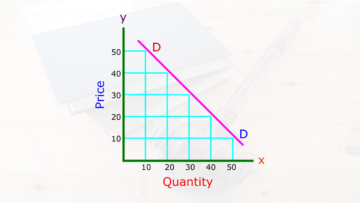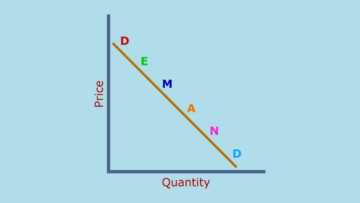The market is divided into several parts based on the situation, one of them is the duopoly market. In this market, there are only two sellers and a large number of buyers. This market is also called seller dominant market because there are only two sellers and a large number of buyers, due to which buyers do not have much choice/option and have to buy from limited options even if they do not want to.
A duopoly market is a part of an imperfect competition market and it is exactly the opposite of a duopsony market because in a duopsony market, there are only two buyers and in it, there are only two sellers. In this market, sellers get more benefits than buyers because buyers have limited options and sellers have more options, but conditions apply.

Table of Contents
What is a Duopoly Market?
A duopoly market is a market (situation) in which there are only two sellers of a product and a large number of buyers. In this market, due to the presence of two sellers of the product, there is a substitute for the product, and it is possible that both the sellers can increase the price of the product by mutual agreement. In this market, sellers are the price setters and have complete control over the market.
There is high competition among the sellers in this market because both the sellers want to attract more and more buyers towards themselves for which they keep coming up with new strategies, but this may or may not happen. Even though there is competition among the sellers in this market, but they are dependent on each other because even a small change can have a big impact on the market.
Features of Duopoly Market
Following are the features of duopoly market:
1. Only Two Sellers:
In a duopoly market, there are only two sellers of a product and they sell the product to all the buyers. Even though there are only two sellers in this market, they control the entire market and have more options than buyers.
2. Large Number of Buyers:
There are a large number of buyers in this market and they may have different preferences towards sellers. Due to only two sellers in this market, buyers do not have much choice and have to buy whatever is available in the market.
3. Interdependence:
In this market, both the sellers depend on each other whether it is about fixing the price or adopting any strategy, that is why both do any work keeping each other in mind. For example, if one seller increases the price of a product, buyers show more interest in the other seller’s product, but this may or may not be the case.
4. Substitute Products Available:
Due to the presence of two sellers in the market, substitute product is available due to which the buyer gets the option to buy the product. Due to the availability of substitute product in this market the seller cannot increase the price of the product alone, if the seller does so he may lose the buyer.
5. Mutual Consent:
Mutual consent can be high in this market because both sellers sell similar products and even a slight change can have a big impact on the market. Mutual consent cannot be done explicitly because doing so is against competition, hence the implicit method is used.
6. Barrier to Entry:
No third seller can enter this market because it can either be done by the government or it is very difficult or not possible to enter. Suppose a third seller enters the market in some way or the other then this market will not be called a duopoly market because the conditions of this market will not be fulfilled.
7. Competition:
There is a lot of competition among sellers in this market because of the substitutes available in the market and each seller wants to attract as many buyers as possible. In this market, even a slight change in the product has a huge impact on the market.
Read Also:
- What is Market? Meaning, Features, and More.
- Types of Market
- What is a Perfect Competition Market? Meaning, Features, and More.
- What is a Monopolistic Competition Market? Meaning, Features, and More.
- What is a Monopoly Market? Meaning, Features, and More.
- What is a Monopsony Market? Meaning, Features, and More.
- What is Duopsony Market? Meaning, Features, and More.
- What is an Oligopoly Market? Meaning, Features, and More.
- What is Oligopsony Market? Meaning, Features, and More.
- What is Bilateral Monopoly Market? Meaning, Features, and More.
QNA/FAQ
Q1. What is a duopoly market?
Ans: A duopoly market is a market in which there are only two sellers of a product and a large number of buyers.
Q2. Are substitutes available in a duopoly market?
Ans: Yes
Q3. Is there a large number of sellers in a duopoly market?
Ans: No, there are only two sellers.
Q4. Is a duopoly market the opposite of a duopsony market?
Ans: Yes
Q5. How many sellers are there in a duopoly market?
Ans: Two
Q6. Is there a large number of buyers in a duopoly market?
Ans: Yes
Q7. Write the features of the duopoly market.
Ans: Following are the features of duopoly market:
1. There are only two sellers.
2. There are a large number of buyers.
3. Sellers depend on each other.
4. Substitute products are available.
5. Mutual consent is seen among the sellers.
6. There are barriers to entry for new sellers.
7. There is high competition among sellers.













